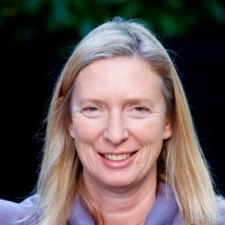Supercell closed 2021 with tremendous financial success, closing the year with $2.24 billion in revenue – a 45 per cent increase in revenue from 2020.
In the same announcement, Supercell CEO Ilkka Paananen identified the need for “fundamental questions start[ing] a deep discussion at Supercell”, following declining mental health and increased team burnout at the company. Tellingly, he described his "mantra of small teams" as "definitely one of the biggest mistakes of the many that I’ve made in my career, and one that I will remember forever".
Following her talk at GDC, PocketGamer.biz spoke with Lesley Mansford, co-chief people officer at Supercell, to discuss how Supercell's working culture has evolved over the years, its new team composition plans, and how Supercell and the wider mobile games industry can combat the increase in burnout.
PocketGamer.biz: Could you summarise your talk at GDC for our readers who were unable to make it to San Francisco?
Lesley Mansford: My talk at GDC, called 'Challenging Supercell's Sacred Cows: The Importance of Evolving Culture as You Grow', was a discussion about how Supercell’s culture has evolved over the last 12 years, and the importance of identifying core values early on, while continuing to assess, evaluate and potentially challenge company culture so it can properly adapt to changes over time. I shared a little about Supercell’s culture journey, specifically how we went about our latest culture reassessment, and a few lessons learned along the way.
Paananen's journey to refine Supercell's culture took many years, and involved producing and iterating on many different documents and guidance. What can other companies take from Supercell's approach, and what do you think they can add expediency on?
I think the most important lesson that other companies can learn is the importance of writing down your cultural values early. An example I shared in the talk was that even though the early Supercellians agreed on our core values and ways of operating around freedom, independence, trust, and responsibility, a discussion about responsibility made it apparent that they had very different interpretations of what that actually meant.
Aligning on values is important but going one level deeper to define what that actually means in practice is equally important. Culture is never done – that’s actually the last line of our latest cultural memo. While we don’t see the major tenets of our culture going away, they will evolve as we continue to learn.
Much of Supercell's working culture was guided by two documents: its working deck and culture memo. Your GDC talk mentions Supercell staff would mistake guidance as strictly instruction and interpretation would vary between readers. What has been done to ensure clarity of messaging?
Today, we only have a culture memo. We went from a deck that felt more like it was for presentation purposes to a memo that is meant to be read. With the memo we can provide a lot more detail as to how we operate. However, it can't be a playbook for every situation, so we encourage newer Supercellians to speak to veterans if they have questions about our culture in practice.
Paananen's February 2022 blog outlined the need to expand Supercell's traditional preference for small teams as games enter beta and live ops. Can you tell us more about the specific needs for larger teams, and about Supercell's process for expanding teams?
Small teams had been very much a part of Supercell’s identity. What became clear over the last year is that not all team situations and stages of development are the same. While a new games team might still be two-to-five people, the concept of small teams might be limiting for a beta or live games team.
The approach is now to start with our players, and the ambition we have for them, as one lens and the sustainability of our Supercellians as the second. That being said, a large team at Supercell may still be only 30 people. So, the idea isn’t to have large teams all of a sudden, but to have healthy team sizes.
The blog also highlighted an increased rate of burnout, a situation reflected industry-wide. What is Supercell doing to ensure greater provision against burnout and mental health issues, and what do you think the wider mobile games industry should be doing to support its workforce?
Burnout is a global problem, obviously exacerbated by over two years of a global pandemic and loss of connection. We started by encouraging conversations about mental health and wellbeing in all our offices - the goal is to raise awareness and reduce the stigma around mental health.
This is clearly a starting point and I think while it’s important to provide great support, benefits, mindfulness apps etc. it's even more important to explore what’s happening at the company level and then team level: what factors are supporting mental wellbeing and what aren’t. It was great to see multiple teams include mental health goals in our annual goal presentations. Some other things we are currently piloting in our Helsinki office are training leads on an early support model, an in-house psychologist twice a week, and a "Jedi of the Mind” program - a mental health equivalent of a first aider - where Supercellians apply for training to better recognise mental health and support team members.
I would encourage leaders to show vulnerability, speak out, and model best practices. I've been pretty honest about my own mental health challenges. I think programs like mental health days are great, but we also need to have the tough conversations about root causes and focus on being proactive rather than reactive.
I think it’s great to see our industry discussing this at conferences and in articles - the more opportunities we have to share what we are doing as individual companies, the more it will benefit the sector overall.





















